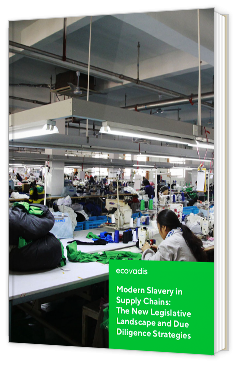

The globalization of supply chains is creating economic opportunity for parts of the world that were historically left out of global trade.

"However, the forces that have provided greater access to jobs and cheaper goods for consumers are simultaneously fueling the deplorable practices of modern slavery around the globe.
According to the International Labour Organization (ILO), 16 million of the estimated 40 million victims of modern slavery are those in forced labor situations within the private sector.
The media, non-governmental organizations (NGOs) and regulators have brought many multinational companies into the spotlight for human rights incidents in their supply chains. Putting their companies’ brand reputation, revenue and, ultimately, social license to operate at risk.
Modern slavery — characterized by low wages, excessive working hours, unsafe conditions, bonded labor contracts and trafficking — persists in regions where poverty rates are high, rule of law is under-developed, and enforcement is absent or undermined by corruption.
Specific sectors, primarily those that are low-skilled, including agriculture, fishing, manufacturing, mining, construction and service industries, have been most exposed to widespread labor abuse due to large prevalence of vulnerable populations employed in these sectors.
According to the International Labour Organization (ILO), 16 million of the estimated 40 million victims of modern slavery are those in forced labor situations within the private sector."